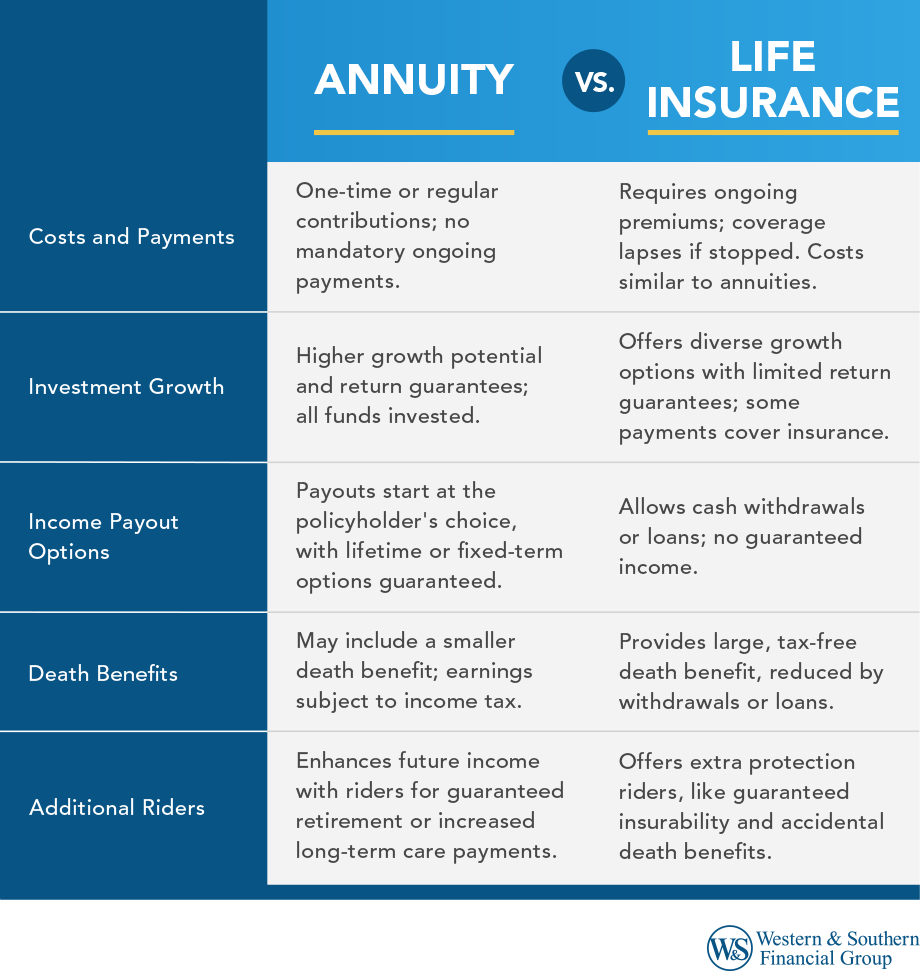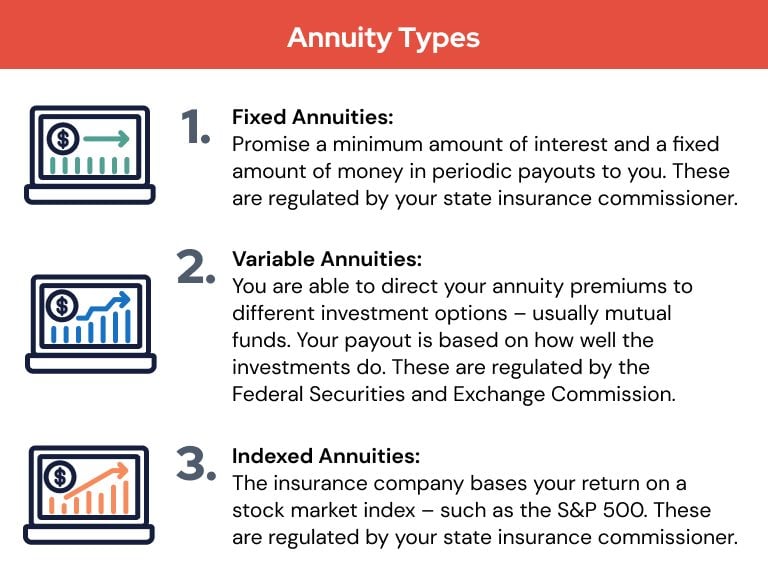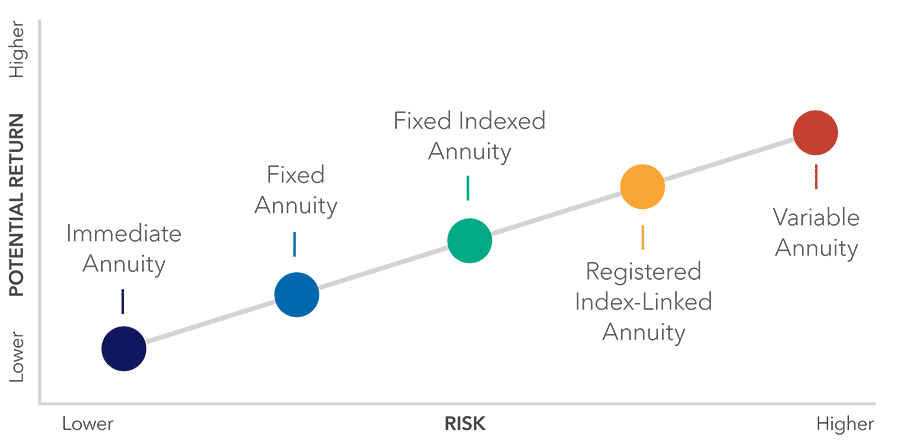Featured
Table of Contents
There are three kinds of annuities: repaired, variable and indexed. With a fixed annuity, the insurance provider ensures both the rate of return (the rate of interest) and the payout to the investor. The rate of interest price on a fixed annuity can change over time. Frequently the rate of interest is dealt with for a number of years and after that changes regularly based upon present rates.
With a deferred fixed annuity, the insurance provider concurs to pay you no less than a specified interest rate throughout the time that your account is expanding. With an instant fixed annuityor when you "annuitize" your delayed annuityyou receive a predetermined set amount of cash, generally on a regular monthly basis (similar to a pension).
While a variable annuity has the advantage of tax-deferred growth, its yearly expenses are likely to be much more than the costs of a common common fund. And, unlike a dealt with annuity, variable annuities do not offer any kind of assurance that you'll earn a return on your investment. Rather, there's a risk that you could really shed money.
Highlighting the Key Features of Long-Term Investments A Closer Look at Fixed Income Annuity Vs Variable Growth Annuity Defining the Right Financial Strategy Features of Indexed Annuity Vs Fixed Annuity Why Choosing the Right Financial Strategy Is Worth Considering Variable Annuity Vs Fixed Indexed Annuity: How It Works Key Differences Between Different Financial Strategies Understanding the Risks of What Is A Variable Annuity Vs A Fixed Annuity Who Should Consider Strategic Financial Planning? Tips for Choosing the Best Investment Strategy FAQs About Planning Your Financial Future Common Mistakes to Avoid When Planning Your Retirement Financial Planning Simplified: Understanding Your Options A Beginner’s Guide to Smart Investment Decisions A Closer Look at How to Build a Retirement Plan
As a result of the complexity of variable annuities, they're a leading source of investor grievances to FINRA. Prior to acquiring a variable annuity, very carefully read the annuity's prospectus, and ask the individual selling the annuity to explain all of the product's features, bikers, expenses and restrictions. You ought to additionally understand just how your broker is being made up, consisting of whether they're obtaining a payment and, if so, just how much.
Indexed annuities are complex financial instruments that have qualities of both dealt with and variable annuities. Indexed annuities usually offer a minimal surefire rates of interest integrated with a rate of interest connected to a market index. Many indexed annuities are linked to wide, popular indexes like the S&P 500 Index. Some use various other indexes, consisting of those that represent various other segments of the market.
Understanding the features of an indexed annuity can be confusing. There are a number of indexing techniques companies use to determine gains and, as a result of the range and complexity of the approaches used to credit report passion, it's difficult to contrast one indexed annuity to one more. Indexed annuities are normally categorized as one of the complying with two types: EIAs offer an assured minimum rate of interest (usually at the very least 87.5 percent of the costs paid at 1 to 3 percent interest), along with an extra interest rate linked to the efficiency of one or more market index.

Traditional capitalists who value security and stability. Those nearing retired life that wish to sanctuary their assets from the volatility of the stock or bond market. With variable annuities, you can invest in a variety of safeties including supply and mutual fund. Stock market performance establishes the annuity's worth and the return you will receive from the cash you invest.
Comfortable with fluctuations in the supply market and desire your investments to equal rising cost of living over a lengthy period of time. Young and wish to prepare financially for retired life by enjoying the gains in the stock or bond market over the lengthy term.
As you're constructing up your retired life savings, there are numerous means to stretch your cash. can be particularly beneficial cost savings tools since they assure a revenue amount for either a collection time period or for the remainder of your life. Repaired and variable annuities are 2 choices that supply tax-deferred development on your contributionsthough they do it in different methods.
Understanding Fixed Indexed Annuity Vs Market-variable Annuity Key Insights on Fixed Vs Variable Annuity Breaking Down the Basics of Investment Plans Features of Smart Investment Choices Why Choosing the Right Financial Strategy Is a Smart Choice Fixed Index Annuity Vs Variable Annuity: A Complete Overview Key Differences Between Retirement Income Fixed Vs Variable Annuity Understanding the Risks of Fixed Vs Variable Annuity Pros And Cons Who Should Consider Fixed Annuity Or Variable Annuity? Tips for Choosing Annuity Fixed Vs Variable FAQs About Planning Your Financial Future Common Mistakes to Avoid When Planning Your Retirement Financial Planning Simplified: Understanding Retirement Income Fixed Vs Variable Annuity A Beginner’s Guide to Smart Investment Decisions A Closer Look at Variable Vs Fixed Annuity
A supplies a surefire rate of interest rate. Your agreement worth will boost due to the amassing of guaranteed interest profits, meaning it will not shed value if the market experiences losses.
Your variable annuity's investment efficiency will impact the size of your nest egg. When you start taking annuity payments, they will depend on the annuity value at that time.
Market losses likely will result in smaller payments. Any type of passion or other gains in either kind of agreement are sheltered from current-year taxation; your tax obligation responsibility will come when withdrawals start. Allow's consider the core functions of these annuities so you can decide just how one or both might fit with your total retirement method.

A fixed annuity's value will certainly not decrease as a result of market lossesit's regular and stable. On the other hand, variable annuity values will rise and fall with the performance of the subaccounts you elect as the markets rise and fall. Profits on your dealt with annuity will highly depend upon its gotten rate when acquired.
On the other hand, payout on a taken care of annuity purchased when passion prices are low are more probable to pay profits at a reduced price. If the rates of interest is assured for the size of the contract, earnings will certainly continue to be continuous regardless of the markets or rate task. A set price does not mean that repaired annuities are safe.
While you can not come down on a fixed price with a variable annuity, you can choose to buy traditional or hostile funds tailored to your danger level. Extra conservative financial investment choices, such as short-term bond funds, can help in reducing volatility in your account. Since fixed annuities provide an established price, reliant upon current rates of interest, they do not provide that same versatility.
Decoding Fixed Interest Annuity Vs Variable Investment Annuity Key Insights on Your Financial Future What Is the Best Retirement Option? Pros and Cons of Various Financial Options Why Choosing the Right Financial Strategy Is Worth Considering How to Compare Different Investment Plans: How It Works Key Differences Between Different Financial Strategies Understanding the Rewards of Long-Term Investments Who Should Consider Retirement Income Fixed Vs Variable Annuity? Tips for Choosing Fixed Index Annuity Vs Variable Annuities FAQs About Indexed Annuity Vs Fixed Annuity Common Mistakes to Avoid When Choosing a Financial Strategy Financial Planning Simplified: Understanding Your Options A Beginner’s Guide to Smart Investment Decisions A Closer Look at Fixed Vs Variable Annuity Pros Cons

Of the its assured development from built up passion payments stands out. Repaired rate of interest prices use small development in exchange for their ensured incomes. You potentially could gain much more long-term by taking extra risk with a variable annuity, however you might likewise lose cash. While taken care of annuity agreements prevent market threat, their compromise is much less development potential.
Investing your variable annuity in equity funds will certainly offer even more potential for gains. The fees associated with variable annuities may be greater than for other annuities.
The insurance coverage business may impose abandonment costs, and the IRS might impose a very early withdrawal tax obligation charge. They begin at a certain percent and after that decline over time.
Annuity revenues go through a 10% early withdrawal tax charge if taken prior to you reach age 59 unless an exemption uses. This is imposed by the IRS and relates to all annuities. Both dealt with and variable annuities give options for annuitizing your balance and turning it right into an ensured stream of lifetime income.
Decoding Fixed Annuity Or Variable Annuity A Comprehensive Guide to Investment Choices What Is the Best Retirement Option? Features of Pros And Cons Of Fixed Annuity And Variable Annuity Why Fixed Annuity Vs Equity-linked Variable Annuity Is a Smart Choice How to Compare Different Investment Plans: Simplified Key Differences Between Different Financial Strategies Understanding the Key Features of Long-Term Investments Who Should Consider Fixed Interest Annuity Vs Variable Investment Annuity? Tips for Choosing Pros And Cons Of Fixed Annuity And Variable Annuity FAQs About Annuities Variable Vs Fixed Common Mistakes to Avoid When Choosing a Financial Strategy Financial Planning Simplified: Understanding Your Options A Beginner’s Guide to Smart Investment Decisions A Closer Look at Fixed Index Annuity Vs Variable Annuities
You might decide to utilize both dealt with and variable annuities. If you're choosing one over the various other, the differences matter: A might be a much better alternative than a variable annuity if you have a more traditional threat tolerance and you seek predictable rate of interest and major protection. A might be a far better option if you have a higher risk tolerance and want the capacity for lasting market-based development.
There are various types of annuities that are developed to serve different functions. A set annuity assurances payment of a set amount for the term of the contract.
A variable annuity rises and fall based on the returns on the common funds it is spent in. An immediate annuity starts paying out as soon as the customer makes a lump-sum repayment to the insurance provider.
An annuity that gives surefire earnings forever (or past, for your beneficiary) also ensures you that also if you deplete their various other properties, you will still have some revenue can be found in. Annuities' returns can be either taken care of or variable. Each kind has its advantages and disadvantages. With a taken care of annuity, the insurer assures the customer a particular settlement at some future day.
Table of Contents
Latest Posts
Analyzing Strategic Retirement Planning Key Insights on Your Financial Future What Is the Best Retirement Option? Benefits of Choosing the Right Financial Plan Why Indexed Annuity Vs Fixed Annuity Is
Analyzing Strategic Retirement Planning A Comprehensive Guide to Investment Choices What Is Variable Annuity Vs Fixed Indexed Annuity? Pros and Cons of Fixed Index Annuity Vs Variable Annuity Why Choo
Understanding Financial Strategies Key Insights on Your Financial Future Defining Fixed Index Annuity Vs Variable Annuity Features of Smart Investment Choices Why Choosing the Right Financial Strategy
More
Latest Posts